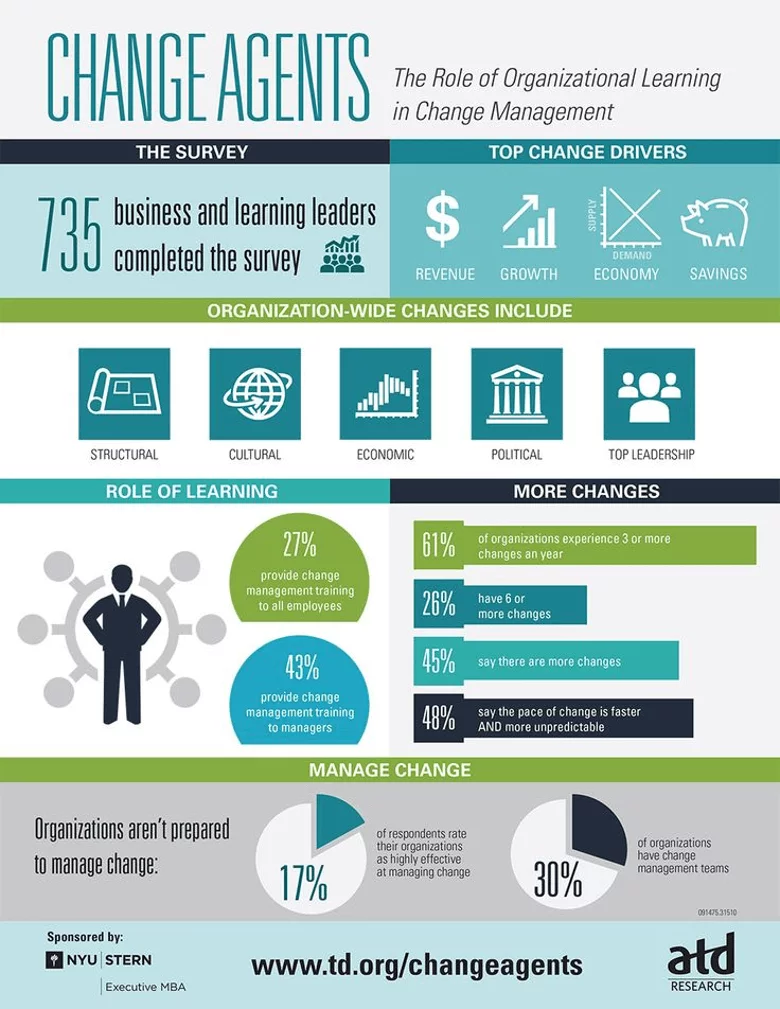
If you’re wondering what organizational development means exactly, don’t worry you’re not alone!
In the Management Agenda Survey conducted by Roffey Park in 2015, most managers couldn’t identify with the concept. To help you on route to successful change, be certain you explore change management in 2018.
This will help you break down the barriers to change, which are usually formed through a lack of understanding.

Courtesy of Pinterest
Ultimately, organizational development is difficult to define because it can’t be neatly label. It is a broad spectrum which doesn’t derive from a single principle, so it thus covers the bigger picture.
If you were going to consider a pronounced definition, it can be viewed as the methods and strategies an organization deploys to engage its staff. These are designed to help companies progress in the right direction.
If you’re looking for additional ways to engage your team, why not try these fun exercises!
Organizational development is a growing discipline, and this has created a scope for skilled individuals to capitalize. Businesses continually seek highly-skilled staff for organizational development.
One of the best ways to differentiate from the competition, and secure a role in an emerging field, is by studying further education.
This is where a masters in organizational development can help you unlock your true potential.
But what exactly is a masters in organizational development? Read on to find out what it is, and to later determine whether it’s a recommended option for you.
What is a Masters in Organizational Development?
Education is designed to equip prospective employees with the skills they need to effectively influence business operations.
A masters in organizational development is no different. The qualification is a cornerstone of behavioral science, which engages employees so they can practically develop their talents.
#Changemanagement – don’t move to the solution before engaging relevant people- id the outcomes and create a SHARED plan #amee2018 #petpeeve #scienceonresistance
— J Colbert-Getz PhD (@jcolbertgetz) August 27, 2018
Learners are given an opportunity to study behavioral patterns, group dynamics, performance measurement, and motivation.
The overarching goal of the program is to influence the behavioral approach of learners, so they can successfully adapt to ever-changing business environments.
When leaders develop a new attitude, they can disseminate their beneficial beliefs and ideologies throughout the company, promoting optimism with an up-to-speed approach to business.
Let’s delve a bit deeper into what studying a masters in organizational development involves:
Adapting to Changing Circumstances
Students are given an opportunity to learn about the factors that influence change, how to facilitate the process, and how to respond to resistance.
The educational platform is built on delving deep into how change can be a disruptive force, who change affects, and how organizational developers can effectively lead transitions.
One of the most critical skills developed is the ability to reassure staff, who often experience anger, dejection, and denial at the thought of change.
A masters in organizational development is an effective tool for developing the skills necessary to help employees adjust to changing circumstances.
For further assistance, you’d be wise to master these tools and techniques!
Developing Leaders
Every organization needs good leaders, especially when there are big changes afoot.
A masters in organizational development explores the relationships which are pivotal in business culture.
It takes a scientific approach to better understand interpersonal relationships, so graduates can more effectively interact with their team.
Students will establish a strategic vision, channeling advanced leadership qualities and consultation skills.
Graduates will consequently make a resounding impact, and contribute to a productive corporate environment. By studying organizational development, you’ll discover ways to transcend organizations into new horizons.
Negotiation Skills
Leaders must learn how to effectively communicate with staff, and how to meet them halfway under given circumstances.
If you force an initiative on staff without their blessing, the chances are they’ll be demotivated and prone to reject the new initiative.
With this qualification, learners develop two-way communication skills, alongside the ability to empathize with staff. This is a huge advantage, which helps leaders appreciate the perception of change.
By learning negotiation skills, organizations can cultivate advantageous interpersonal relationships. This helps to develop a culture where staff embrace change, facilitated by them being actively involved in the process.
Is a Masters in Organizational Development Right For You?
Now you know the type of things you’ll learn with the qualification, let’s take a look at what you can do with it.
Well, the chances are you’ll be seeking a job either in HR, as a consultant, or a business leader. The latter usually requires progression, but with a qualification they’ll be a clear route to this role with hard work and dedication.
The spectrum is broad though, in fact it’s not uncommon for people to go into IT or even reach CEO status!
A masters in organizational development gives graduates a diverse business perspective, which can be applied to multiple professions.
Organizational development is centered on the execution of preferable business actions. It is all about the process, but there is a critical question you should ask yourself.
Will you enjoy studying the qualification? If so, you’ll be primed for a valuable industry experience, one which you can thrive from.
If you’re passionate about the field, you’ll experience a rewarding career in a position that suits you.
WalkMe Team
WalkMe spearheaded the Digital Adoption Platform (DAP) for associations to use the maximum capacity of their advanced resources. Utilizing man-made consciousness, AI, and context-oriented direction, WalkMe adds a powerful UI layer to raise the computerized proficiency, everything being equal.



